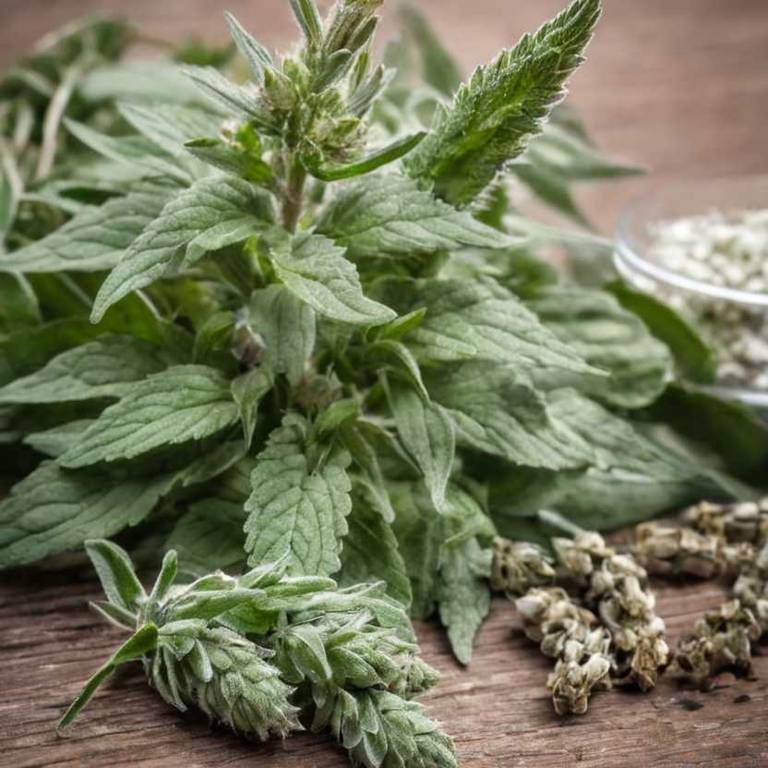By Leen Randell
Updated: Jul 06, 2024
What Are The Medicinal Properties Of Stachys Officinalis (Betony)?

Stachys officinalis, also known as betony, has health benefits such as reducing anxiety and stress, improving sleep, and alleviating headaches and migraines.
The medicinal constituents of betony include betonicine, betulinic acid, and ursolic acid, which are known for their anti-inflammatory and antioxidant properties. Betony can be prepared into teas, tinctures, and infusions, which are used to treat various ailments. Possible side effects include stomach upset and allergic reactions.
Caution should be taken when using betony, especially for pregnant or breastfeeding women, and those with bleeding disorders.
This article explains the health benefits, active constituents, medicinal preparations, possible side effects, and precautions related to Stachys officinalis.
- What are the health benefits of Stachys officinalis?
- What are the active constituents of Stachys officinalis?
- What are the medicinal preparations of Stachys officinalis?
- What are the possible side effect of using Stachys officinalis improperly?
- What precautions to take when using Stachys officinalis medicinally?
What are the health benefits of Stachys officinalis?
Stachys officinalis, also known as betony, has health benefits such as reducing anxiety and stress, promoting a restful night's sleep, and easing digestive issues.
Its anti-inflammatory properties can also help soothe sore throats, wounds, and other skin irritations. Additionally, betony has been traditionally used to improve mental clarity and memory.
Its calming effects can be attributed to its essential oils, which work synergistically to promote overall well-being and balance.
Here's a detailed article about the 10 health benefits of Stachys officinalis.
What are the active constituents of Stachys officinalis?
Stachys officinalis, also known as betony, has active constituents such as rosmarinic acid, caffeic acid, and flavonoids.
These compounds possess anti-inflammatory and antioxidant properties, contributing to its traditional use in treating headaches, anxiety, and insomnia.
Betony also contains iridoids, including stachydrine and leonurine, which have been shown to have neuroprotective and vasodilatory effects, further supporting its medicinal value.
Here's a detailed article about the 10 active constituents of Stachys officinalis.
What are the medicinal preparations of Stachys officinalis?
Stachys officinalis, also known as betony, has medicinal preparations such as infusions, tinctures, and dried herb, which are used to treat various ailments.
Infusions are made by steeping the dried leaves in hot water to create a calming and anti-inflammatory drink. Tinctures, extracted using a solvent, are taken as a concentrated liquid to relieve anxiety, insomnia, and stress.
The herb can also be made into capsules or tablets for convenient consumption.
Here's a detailed article about the 10 medicinal preparations of Stachys officinalis.
What are the possible side effect of using Stachys officinalis improperly?
Improper use of Stachys officinalis, also known as betony, increases the chances of experiencing side effects such as headaches, dizziness, and gastrointestinal disturbances, particularly when taken in large doses.
Additionally, high consumption can lead to interactions with certain medications, including blood thinners and diabetes treatments.
Overuse may also exacerbate anxiety and insomnia in some individuals.
Here's a detailed article about the 10 most common side effects of Stachys officinalis.
What precautions to take when using Stachys officinalis medicinally?
Before using Stachys officinalis, also known as betony, for medicinal purposes, you must take precautions such as consulting with a qualified healthcare professional, especially if you have any underlying medical conditions or allergies.
Additionally, pregnant or breastfeeding women, as well as children, should avoid using betony as it may cause adverse effects.
Always follow proper dosing guidelines and monitor for signs of allergic reactions or interactions with other medications.
Here's a detailed article about 10 precautions to take when using Stachys officinalis.